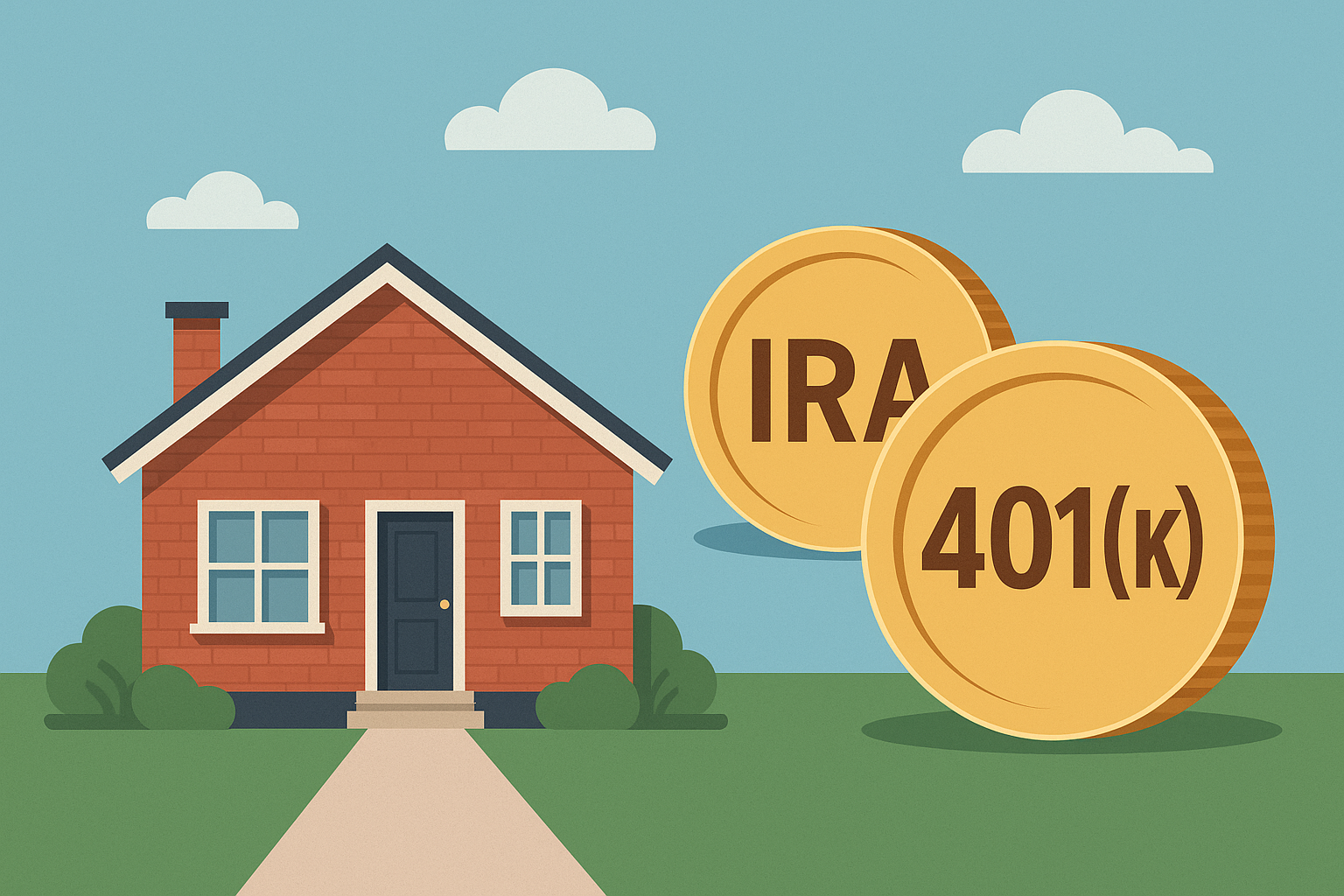Can You Use an IRA or 401(k) to Invest in Real Estate?
Can You Use an IRA or 401(k) to Invest in Real Estate?
For many investors, retirement accounts like IRAs (Individual Retirement Accounts) and 401(k)s are the backbone of long-term financial planning. These accounts offer powerful tax advantages, allowing your money to grow either tax-deferred or tax-free in the case of a Roth. But a question that often comes up is: Can you use an IRA or 401(k) to invest in real estate?
The short answer is yes, but it requires specific account structures, careful planning, and awareness of IRS rules. Let’s break down how this works, the benefits, and what to watch out for.

How Real Estate Investing with Retirement Accounts Works
Traditional IRAs and 401(k)s typically limit your investment options to stocks, bonds, mutual funds, and ETFs. To buy real estate, you’ll need what’s called a self-directed IRA (SDIRA) or a solo 401(k). These specialized accounts open up a much broader menu of alternative investments, including:
-
Residential rental properties
-
Commercial properties
-
Land
-
Real estate investment trusts (private REITs)
-
Real estate notes and tax liens
With a self-directed account, you can use your retirement funds to purchase property outright, or in some cases, leverage financing—although this comes with its own restrictions.
The Benefits of Using an IRA or 401(k) for Real Estate
-
Tax Advantages
-
In a traditional IRA or 401(k), rental income and capital gains grow tax-deferred until you take distributions in retirement.
-
In a Roth IRA or Roth 401(k), qualified withdrawals can be tax-free, meaning real estate growth escapes both capital gains and income tax.
-
-
Diversification
Real estate can be an effective hedge against inflation and stock market volatility, providing an alternative income stream that doesn’t directly correlate with equities. -
Wealth Building Through Leverage
With some accounts, you may be able to use non-recourse loans to purchase real estate. This allows you to magnify returns—though it also increases risk. -
Control Over Investments
Self-directed retirement accounts allow you to invest in tangible assets, giving you more control compared to standard mutual fund offerings.
Rules and Restrictions You Need to Know
While the idea of buying real estate with retirement money is exciting, the IRS has strict guidelines you must follow. Violating these rules could trigger taxes, penalties, or even disqualification of your account.
-
No Personal Use: You or your family members cannot live in or vacation at a property owned by your IRA or 401(k). It must be strictly for investment purposes.
-
No “Self-Dealing”: You cannot sell personal property to your IRA or rent IRA-owned property to disqualified persons (like yourself, your spouse, parents, children, or business partners).
-
Expenses and Income Flow Through the Account: All expenses (repairs, property taxes, insurance) must be paid from the retirement account, and all income (rent, sale proceeds) must go back into the account.
-
Limited Financing Options: If you use leverage, it must be a non-recourse loan. Additionally, unrelated business taxable income (UBTI) may apply if your retirement account generates income from debt-financed property.
Should You Use Your Retirement Funds for Real Estate?
This strategy is not for everyone. While the potential returns can be attractive, it also comes with unique challenges:
-
Less liquidity compared to stocks and bonds
-
Added complexity in recordkeeping and IRS compliance
-
Possible high custodial or administrative fees with SDIRAs
-
Potential tax complications if leverage is involved
For investors who understand real estate and want more control over their retirement portfolios, using a self-directed IRA or solo 401(k) can be a powerful tool. However, it’s important to work with experienced custodians and tax professionals to avoid costly mistakes.
Final Thoughts
Yes—you can use an IRA or 401(k) to invest in real estate, but you can’t simply write a check from your standard retirement account. You’ll need a self-directed IRA or a solo 401(k), and you must follow IRS rules carefully to avoid penalties.
If done correctly, this strategy allows you to combine the tax advantages of retirement accounts with the wealth-building potential of real estate. Before diving in, consider your risk tolerance, long-term goals, and whether the added complexity is worth the potential rewards.
Categories
Recent Posts










GET MORE INFORMATION

Agent | License ID: 14225128-SA00

